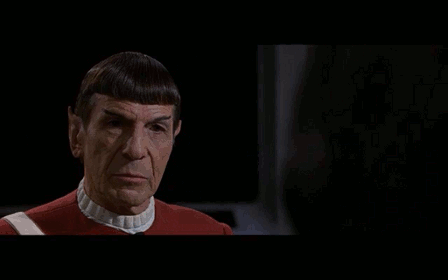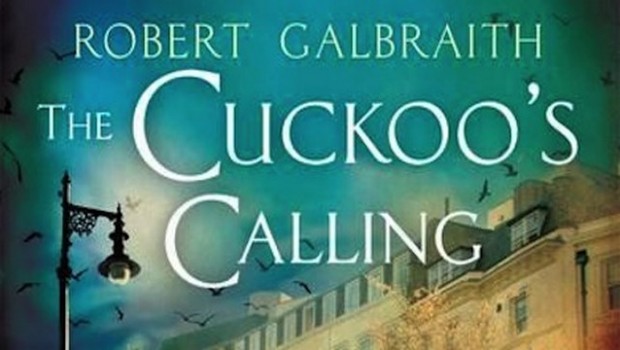Those parentheses are there for a reason. On the other hand there is absolutely no reason for me not to call them brackets.. momentary sneeze of pretension. Excuse me..
I’m not a political person. At least not judging by my Facebook feed. And I’ve tried very hard to avoid politics on here. Time and again subjects have raised their heads – diversity is a hot button in most writing forums – and it’s not like I don’t think about them. A lot. But every time I thought about writing an article something always held me back. Something is still holding me back. I guess I’m hoping I’ll know whether or not I’ll be posting this by the time I finish writing it.

Regardless of my own attitude, there is no doubt we are living in a political age. The internet seems to exist solely to provide a platform for the aggrieved and righteous, the offensive and the offended. I’m treated to an almost endless list of stuff I should be pissed off about every time I log into any of my social media accounts. Which may explain why I’ve forgotten most of my passwords.
- I was read sexist propaganda as a child (because all girls were only ever read Cinderella)
- My clothes are chains (probably why all the feminists are stripping off in magazines)
- The only reason I’m not published is because I don’t have a penis. (Drawing one on a post-it doesn’t count. Apparently)
I have to admit even as I write this I find myself very loath to step beyond the gender related statements and touch upon topics such as the colour of my skin, my sexuality, my religion. I’m not sure how they all intersect as regards this strange notion of privilege. I feel often when I happen upon these discussions that the most relevant part of my identity is simply that I’m not American.
Samuel L Jackson recently came under fire for wondering what an American would have made of a role given to a British actor. As Brits who have sat through too many Dick Van Dykes 😀 we’re probably not that hugely sympathetic, but his comments arose from his observation that the history of race relations in America and Britain are distinctly different, and that, that difference, matters.
It raises the interesting idea that we aren’t merely trying to retrofit a one size fits all solution, but a one-size fits all problem. As culture becomes increasingly globalised, as eyes turn from across the world to fix inward at the same few points, is it shrinking? Are our points of references being reduced to the most common denominators, accessible by all, shaped by a few?
There’s been a flavour of this for a while, much of our entertainment transcends boundaries. Through travelling I’ve encountered a pervasive Western mentality that defines so many of my generation across Europe, a mentality that wasn’t shaped by our parentage but our shared culture mined through art and entertainment.
And whenever I had the privilege to witness culture smacking against culture, it always fascinated rather than aggrieved. I’ve never believed that conflict requires resolution, that opposing forces can not co-exist and be equally valuable.
That might sound a little naive, but here’s the reality; they do co-exist. It’s that last part that trips folk up. It is in pursuit of resolution, our need for some sense of certainty that conflict becomes problematic. Something some believe drives story and our love of it.
It’s very easy to get locked in your own perspective to the extent that you can’t see the picture clearly. And two recent shocks in international politics have shown that what seems the majority in the insular world of the internet isn’t necessarily reflecting the majority out there in the real world.
It doesn’t however mean that we aren’t all exposed to it; that it isn’t driving our decision making and our expectations.
If you don’t read the newspaper, you’re uninformed. If you do read the newspaper, you’re misinformed ~ Mark Twain
What begins in an internet chatroom, on an obscure individuals personal page can trickle, insidiously cross mediums, borders, demographics. It becomes fact through repetition, when questioned is defended and reinforced by this defence, if attacked, spread wider.
The internet may be the new cultural normal, but that doesn’t mean it isn’t guided by old rules. When dealing with what’s popular we seem always to return to the notion of the lowest common denominator. Make it simple, make it clear, make it easy.
But some things aren’t simple. Ever heard of a wicked problem? It’s something that is near to, if not totally, impossible to solve due to interlocked and ever-shifting components, which often means that when you solve one part another then becomes unglued.
A problem whose solution requires a great number of people to change their mindsets and behaviour is likely to be a wicked problem. – Wiki
Two parts of the full definition, I’ve always found most interesting, is the acknowledgement that each problem, and each resulting facet of any solution, is unique and that, in consequence, we can’t learn through trial and error. Every time we implement an idea, a possible solution, the game doesn’t reset if it fails, or if it succeeds, it evolves.
It feels as thought every problem we have and every ingredient we add to the mix is being sifted through the filter of the Internet – of, for, by the lowest common denominator – and the resulting cookie disseminated far and wide, not just geographically but temporally, because unlike conversations or newspapers, nothing ever dies on the net, no matter how much it stinks. Of course books, you might cry, books last, they don’t become fish and chip papers, but books are big and long and long and big…

Perhaps one of the most pervasive examples of a book being reduced to a single annoying neat-as-a-tweet point is the manner in which George Orwell has evolved into an adjective. How many of the people who talk of living in an Orwellian world, do you reckon have read the book?… lets just repeat that for any who missed it.. PEOPLE IN INDETERMINABLE NUMBERS POST WHENEVER THEY WISH ON PUBLIC SITES ACCESSIBLE AROUND THE WORLD.. Now the rallying cry is that I am being too literal, its about influence. Having never been too literal – and usually barely literal – I’ll reply that I’m not offering a rebuttal, I’m asking for greater depth. The illusion of free will might just be as good as free will, in terms of happiness, productivity and opportunity – thousands of years of philosophy haven’t come to a conclusion on that yet, but a couple of guys with 280 characters between them think they can.
Much of this was inspired by quite a few recent rehashes. I’m not just talking Hollywood’s sacrilegious attack on classics such as Ghostbusters but in fiction we are seeing reworks of fairytales – the Lunar Chronicles – norse mythology, Chinese Legend, Greek gods – Percy Jackson – even Shakespeare. And it all has a very familiar taint.
There’s an oft cited notion that there are only a few stories in literature and everything, however diverse it might seem, is derivative of those. Right now, it doesn’t seem diverse at all. There’s only one story. It involves a plucky, special sort of hero(ine), the fate of the world, some bad (ass) dialogue and tortured romance. Take the recent Hollywoodisation of Alice in Wonderland. Is Alice wandering around listening to riddles and getting cross? No, she’s strapping on armour and finding her inner She-ra. Is the mad hatter jumping about on tables, and confusing the hell out of her? No, he’s now her bestest friend in the world that she is willing to die and risk sexist old men for, as that’s how it works when you bump into a weirdo having tea once.
But that’s teenage fiction, adults surely require something a little more sophisticated? They’ve read so many books the same old story on rinse and repeat won’t wash. Station Eleven, an Arthur C Clarke award winner, might seem like this on the surface. On the surface its hard to see any story at all, but once you remove the weird vignettes about a washed up film star you have a villain who is evil just cause he read the bible once too often, whose only visible sin is to marry off young girls, and an mc who happens to be a young woman with killer knife skills..
She stood and the handles of the knives in her belt glinted in the half light. This wire of a woman, polite but lethal, who walked armed with knives through all the days of her life. He’d heard stories from other Symphony members about her knife throwing ability. She was supposedly able to hit the centre of targets blindfolded – Station Eleven by Emily St John Mandel
And when we do see her strike it is almost superhuman. She’s tough and self contained, but will kill for her friends. She sleeps around and breaks her lovers heart, but while regretful for his pain, shows little guilt. Just like a man; just not like a real one.
A recent Nebula, Hugo and Arthur C Clarke award winner, Ancillary Justice, puts gender issues front and centre by using a machine intelligence as its main pov, which addresses all lifeforms as female. An experiment in how we perceive gender or simply a tiresome gimmick that prevented the reader from engaging fully with the text? Most of the negative reviewers felt the latter.
Compare it with The Turbulent term of Tyke Tiler, a children’s book from the 1980’s about an incorrigible troublemaker named Tyke. It cleverly avoided ever naming its protagonist’s gender – cleverly because the reader read blithely unaware until the last scene when finally it was revealed her real name was Theodora. Nowadays I’ve been earnestly informed that such deception would anger a reader, much better your agenda be clear from page one and unmistakable in its intent.
The issue here I should stress isn’t that woman are presented as strong. Its the fact that I feel the need to say I have no issue with strong women, to preface anything I might say regarding this or any other political hot button with some sort of defence. It’s the way the fear, the demands and the blanket simplicity of prevailing opinion is squeezing and shaping everything. The way it strips away nuance and closes down discussion in favour of a nuke ’em if they disagree approach.
And it seems utterly unable to recognise its own inbuilt prejudices that still shine through.
One of the recent big successes, one which has spawned a thousand imitators, is The Hunger Games. Katniss has been lauded as a feminist role model for teenage girls everywhere. I’m guessing because she has a bow and arrow. No one seems to acknowledge that she is in fact the very model of the Mother. A vessel, a nurturer, she seems defined by sacrifice, fuelled by the desires and needs of others, a puppet for the rebellion, striking only when others demand she does. Collins has claimed the legend of Theseus and the Minotaur as her inspiration. Yet Theseus takes action not reactively but proactively, out of a desire to change the status quo. Katniss never harbours such hope, desiring only to protect her sister. Or Rue. Or Peeta. Returning us yet again to the idea that women themselves, their ‘selfish’ desires aren’t important only their biological role. The very thing that Atwood famously took aim at a few decades before, in The Handmaids Tale.
Twilight author Meyer was attacked for writing an end battle that was revealed only to be a vision of what might be, allowing all characters to walk away, alive and wiser for it. Given the fans and the legacy – an entire new genre of paranormal romance – it seems the fighting was at best an attempt to retrofit a series to fit an audience that didn’t actually exist, a demand made by vapours of ‘shoulds’ rising from the internet and the current zeitgeist.
Of course there is life beyond the tentacled heart of Western storytelling; the magical realism of South America, the fantastical physicality of Hong Kong cinema or the alternative – totally mainstream alternative – manga. Such is the popularity of the form the New York Times has had a bestselling Manga list since 2009, and while Patterson – dear lord man! – managed to wiggle his way on there most are actually not born and raised near the Mason Dixon line. ie they are Japanese.
However when you start to take a closer look at some of those best sellers, like One Piece or Sailor Moon, there are some very familiar faces. Heroes with unique gifts that set them apart, a crew of diverse archetypes including the loyal confidant and fiesty love interest, and of course the fate of the world. Daily.
A recent live action attempt to bring the beloved Ghost in the Shell franchise to a wider audience was bogged down in controversy over white-washing the main characters. Principally by casting Scarlett Johannssen as the lead. Few critics had much negative to say about her performance however, and many felt the true issue was the Hollywoodisation of the storyline and its handling of the deeper themes which characterise the original.
Somebody misjudged how poorly American superhero movie tropes would map onto Ghost in the Shell….the final scene tried to do that ‘satisfying our need for closure’ thing American directors think is kind, but is actually condescending. ~ Kotaku, Cecilia D’Anastasio
I may have rambled on more than usual. I don’t have answers, just questions, that always seems to take up more space. Or it should. Which is rather the point. Modern fiction seems intent on giving us the answers, almost in a manner that is beginning to feel like propaganda. Nothing feels new, in base idea or depth of exploration. We’re offered the same answer over and over, we’re interpreting every issue as if it were identical, as if we were identical, because we’re not writing ideas, but stripes, identifying our tribe. The good, the enlightened, the righteous – and if you’re not on board with lesbian alien-lizard sex then dude move to the next section of the library while the rest of us pretend that we didn’t just get put into a coma by the lamest lesbian lizard ever written, because you know, we’re liberal…
This particular ‘humane tour de force’ only made it onto the Arthur C Clarke Shortlist. I’m going to start using that as a must-not read list. It’s a lot like Sesame Street in space. No disrespect to Sesame Street, which is probably a lot more fun, but I feel like I’m a little past caring that Bert and Ernie share a bed. So what am I looking for? Not preaching not the answer to sex, religion and everything else being throw yourself into a burning pit of fire (as recommended by all 21st century authors as they sip their mocha-choca-chinos on their ergonomic lazy boys..) Maybe I miss when the answer was 42. It made more sense. Mostly I miss reading those books that make you feel like the world was just cracked open a little wider.





















